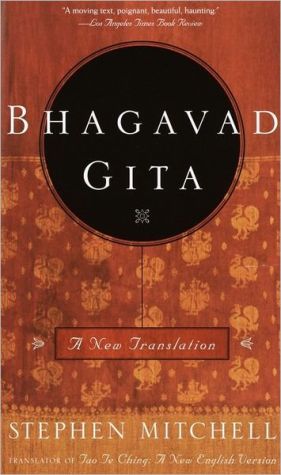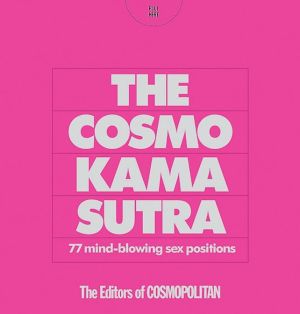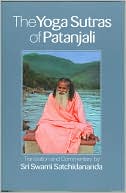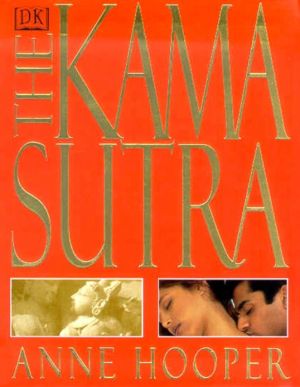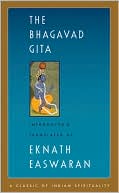The Bhagavad Gita: A New Translation
Stephen Mitchell is widely known for his ability to make ancient masterpieces thrillingly new, to step in where many have tried before and create versions that are definitive for our time. His celebrated version of the Tao Te Ching is the most popular edition in print, and his translations of Jesus, Rilke, Genesis, and Job have won the hearts of readers and critics alike. Stephen Mitchell now brings to the Bhagavad Gita his gift for breathing new life into sacred texts.\ The Bhagavad Gita is...
Search in google:
The author of the popular new English version of "Tao te Ching" brings his gift for bringing new life into ancient sacred texts to one of the world's greatest and most widely read scriptures. This most famous and revered of Hindu scriptures tells the timeless story of the paths of knowledge, devotion, action and meditation. Unabridged. Publishers Weekly Arguing that dancehall music is steeped in the Jamaican slave culture of 200 years ago and is not just a recent form of expression by volatile ghetto youth, Norman C. Stolzoff, an anthropologist at the University of California-Irvine, puts forth the first comprehensive study of a largely misunderstood and underestimated phenomenon. In Wake the Town & Tell the People: Dancehall Culture in Jamaica, Stolzoff reveals that the lingo, dress code, power structure (including sexism and violence), sound and expression of dancehall not only reflect the struggle between Jamaica's haves and have-nots but also represent an intra-class (though not insular) battleground among the nation's poor. 44 b&w photos. (Duke Univ., $19.95 320p ISBN 0-8223-2514-4) BHAGAVAD GITA Stephen Mitchell. Harmony, $20 (224p) ISBN 0-609-60550-X ~ The Bhagavad Gita first captured the American imagination in the mid-19th century, when Henry Thoreau and other self-styled "Brahmins" found fresh, contemporary wisdom in India's ancient sacred text. Despite more than 200 English versions since then, few translators have captured the urgency and sagacity of Arjuna's pre-battle dialogue with the god Krishna more expertly than Mitchell, whose translation of the Tao te Ching has sold more than half a million copies and garnered much praise. Mitchell is, refreshingly, as frustrated by the Gita's bewitching circularity as many of its readers have been, and does not shrink from challenging some of the poem's conclusions. Concerning war, for example, he asks, "How indeed can an enlightened sage, who cherishes all beings with equal compassion because he sees all beings within himself and himself within God, inflict harm on anyone, even wicked men who have launched an unjust war?" Mitchell's translation is intimate and personal; he encourages readers to stand in Arjuna's place, asking themselves how they should live. Mitchell emphasizes that the poem is a guide to the path of bhakti yoga (devotion) more than it is merely a philosophical discussion. "The Gita is a love song to reality, a hymn in praise of everything excellent and beautiful and brave," he notes. (Oct.) VISIONS: The Soul's Path to the Sacred Eddie Ensley. Loyola, $17.95 (285p) ISBN 0-8294-1427-4 (Christianity/Spirituality) ~ Ensley, a Roman Catholic contemplative of Native American descent, explores the role of visions in the human experience, specifically the Christian experience. His study of visions in Christian history (e.g., the writings of saints such as Anselm and Thomas Aquinas, and church authorities' interviews with believers who have experienced visions and healings), his own people's traditions, and stories he has heard at retreats have led Ensley to believe that most people have visions. Indeed, he hypothesizes that the human brain is "hard-wired" for transcendence. He attributes modern theology's relative silence on the topic to the Enlightenment, which reduced knowledge to what was rationally comprehensible. Ensley demonstrates that into the 16th century, Christians considered visions an important part of their faith life, while Christians since the rise of rationalism have continued to have visions, but are reluctant to discuss them and lack training in how to interpret them. Ensley gives readers a broad perspective on their own experiences, providing meditations, prayers and writing exercises to equip readers to become receptive and responsive to their visions. Although the book is grounded in the Christian tradition, people of other faiths may also appreciate Ensley's practical integration of transcendent events into everyday life. (Oct.) Copyright 2000 Cahners Business Information.\|
ARJUNA'S DESPAIR\ King Dhritarashtra said:\ In the field of righteousness, the field of Kuru, tell me, Sanjaya, what happened when my army and the Pandavas faced each other, eager for battle?\ The poet Sanjaya said:\ Seeing the ranks of the Pandavas' forces, Prince Duryodhana approached his teacher, Drona, and spoke these words: "Look at this great army, led by the son of Drupada, your worthy pupil. Many great warriors stand ready to do battle, many great archers, men as formidable as Bhima and Arjuna: Yuyudhana, Virata, the mighty Drupada, Dhrishtaketu, Chekitana, the heroic king of Benares, Purujit, Kuntibhoja, Shaibya that bull among men, bold Yudhamanyu, Uttamaujas famous for his courage, the son of Subhadra, and the sons of Draupadi, all of them great warriors. Now, most honored of priests, look at the great men on our side, the leaders of my army: you, first of all, then Bhishma, Karna, the always-victorious Kripa, Ashvatthama, Vikarna, the son of Somadatta, and many other heroes—all of them skilled in war and armed with many kinds of weapons—who are risking their lives for my sake. Limitless is this army of ours, led by Bhishma; but their army, led by Bhima, is limited. Wherever the battle moves, all of you must stand firm and make sure that Bhishma is well protected."\ Then Bhishma, the aged grandfather of the Kurus, roared his lion's roar and blew a powerful blast on his conch horn, and Duryodhana's heart leapt with joy. Immediately all the conches blared, and the kettledrums, cymbals, trumpets, and drums: a deafening clamor. Standing in their great chariot yoked with white horses, Krishna and Arjuna blew their celestial conches: Krishna blew the conch called "Won from the Demon Panchajanya"; Arjuna blew "God Given"; ferocious, wolf-bellied Bhima blew the mighty conch called "King Paundra"; Prince Yudhishthira blew "Unending Victory"; Nakula and his twin, Sahadeva, blew "Great Noise" and "Jewel Bracelet"; the king of Benares that superb archer, the great warrior Shikhandi, Dhrishtadyumna, Virata, the unconquerable Satyaki, Drupada, Draupadi's sons, the huge-armed Abhimanyu—all of them, O King, blew their conches at once. The uproar tore through the hearts of Dhritarashtra's men and echoed throughout heaven and earth.\ Then Arjuna, looking at the battle ranks of Dhritarashtra's men, raised his bow as the weapons were about to clash, and said to Krishna, "Drive my chariot and stop between the two armies, so that I can see these warriors whom I am about to fight, drawn up and eager for battle. I want to look at the men gathered here ready to do battle service for Dhritarashtra's evil-minded son."\ After Arjuna had spoken, Krishna drove the splendid chariot and brought it to a halt midway between the two armies. Facing Bhishma, Drona, and the other great kings, he said: "Look, Arjuna. From here you can see all the Kurus who are gathered to do battle."\ Arjuna saw them standing there: fathers, grandfathers, teachers, uncles, brothers, sons, grandsons, fathers-in-law, and friends, kinsmen on both sides, each side arrayed against the other. In despair, overwhelmed with pity, he said: "As I see my own kinsmen, gathered here, eager to fight, my legs weaken, my mouth dries, my body trembles, my hair stands on end, my skin burns, the bow Gandiva drops from my hand, I am beside myself, my mind reels. I see evil omens, Krishna; no good can come from killing my own kinsmen in battle. I have no desire for victory or for the pleasures of kingship. What good is kingship, or happiness, or life itself, when those for whose sake we desire them—teachers, fathers, sons, grandfathers, uncles, fathers-in-law, grandsons, brothers-in-law, and other kinsmen—stand here in battle ranks, ready to give up their fortunes and their lives? Though they want to kill me, I have no desire to kill them, not even for the kingship of the three worlds, let alone for that of the earth. What joy would we have in killing Dhritarashtra's men? Evil will cling to us if we kill them, even though they are the aggressors. And it would be unworthy of us to kill our own kinsmen. How could we be happy if we did? Because their minds are overpowered by greed, they see no harm in destroying the family, no crime in treachery to friends. But we should know better, Krishna: clearly seeing the harm caused by the destruction of the family, we should turn back from this evil. When the family is destroyed, the ancient laws of family duty cease; when law ceases, lawlessness overwhelms the family; when lawlessness overwhelms the women of the family, they become corrupted; when women are corrupted, the intermixture of castes is the inevitable result. Intermixture of castes drags down to hell both those who destroy the family and the family itself; the spirits of the ancestors fall, deprived of their oVerings of rice and water. Such are the evils caused by those who destroy the family: because of the intermixture of castes, caste duties are obliterated and the permanent duties of the family as well. We have often heard, Krishna, that men whose family duties have been obliterated must live in hell forever. Alas! We are about to commit a great evil by killing our own kinsmen, because of our greed for the pleasures of kingship. It would be better if Dhritarashtra's men killed me in battle, unarmed and unresisting."\ Having spoken these words, Arjuna sank down into the chariot and dropped his arrows and bow, his mind heavy with grief.
\ Publishers Weekly - Publisher's Weekly\ Arguing that dancehall music is steeped in the Jamaican slave culture of 200 years ago and is not just a recent form of expression by volatile ghetto youth, Norman C. Stolzoff, an anthropologist at the University of California-Irvine, puts forth the first comprehensive study of a largely misunderstood and underestimated phenomenon. In Wake the Town & Tell the People: Dancehall Culture in Jamaica, Stolzoff reveals that the lingo, dress code, power structure (including sexism and violence), sound and expression of dancehall not only reflect the struggle between Jamaica's haves and have-nots but also represent an intra-class (though not insular) battleground among the nation's poor. 44 b&w photos. (Duke Univ., $19.95 320p ISBN 0-8223-2514-4) BHAGAVAD GITA Stephen Mitchell. Harmony, $20 (224p) ISBN 0-609-60550-X ~ The Bhagavad Gita first captured the American imagination in the mid-19th century, when Henry Thoreau and other self-styled "Brahmins" found fresh, contemporary wisdom in India's ancient sacred text. Despite more than 200 English versions since then, few translators have captured the urgency and sagacity of Arjuna's pre-battle dialogue with the god Krishna more expertly than Mitchell, whose translation of the Tao te Ching has sold more than half a million copies and garnered much praise. Mitchell is, refreshingly, as frustrated by the Gita's bewitching circularity as many of its readers have been, and does not shrink from challenging some of the poem's conclusions. Concerning war, for example, he asks, "How indeed can an enlightened sage, who cherishes all beings with equal compassion because he sees all beings within himself and himself within God, inflict harm on anyone, even wicked men who have launched an unjust war?" Mitchell's translation is intimate and personal; he encourages readers to stand in Arjuna's place, asking themselves how they should live. Mitchell emphasizes that the poem is a guide to the path of bhakti yoga (devotion) more than it is merely a philosophical discussion. "The Gita is a love song to reality, a hymn in praise of everything excellent and beautiful and brave," he notes. (Oct.) VISIONS: The Soul's Path to the Sacred Eddie Ensley. Loyola, $17.95 (285p) ISBN 0-8294-1427-4 (Christianity/Spirituality) ~ Ensley, a Roman Catholic contemplative of Native American descent, explores the role of visions in the human experience, specifically the Christian experience. His study of visions in Christian history (e.g., the writings of saints such as Anselm and Thomas Aquinas, and church authorities' interviews with believers who have experienced visions and healings), his own people's traditions, and stories he has heard at retreats have led Ensley to believe that most people have visions. Indeed, he hypothesizes that the human brain is "hard-wired" for transcendence. He attributes modern theology's relative silence on the topic to the Enlightenment, which reduced knowledge to what was rationally comprehensible. Ensley demonstrates that into the 16th century, Christians considered visions an important part of their faith life, while Christians since the rise of rationalism have continued to have visions, but are reluctant to discuss them and lack training in how to interpret them. Ensley gives readers a broad perspective on their own experiences, providing meditations, prayers and writing exercises to equip readers to become receptive and responsive to their visions. Although the book is grounded in the Christian tradition, people of other faiths may also appreciate Ensley's practical integration of transcendent events into everyday life. (Oct.) Copyright 2000 Cahners Business Information.\|\ \ \ \ \ Library JournalMitchell must by now be accounted one of our generation s heroic translators, having taken on the Book of Job, the Tao te Ching, and Genesis and done so much to popularize Rilke in English. Now he applies his considerable skill and sympathy to one of the most noted sacred texts of Asia, the Bhagavad Gita, and the results are very happy. He works in free-verse quatrains of about three beats per line, and his language flows with great naturalness. Inevitably, this text will remain both ancient and foreign to many modern readers, but Mitchell s work goes a long way to making these words...[drive] away your ignorance and delusion. Highly recommended. Copyright 2000 Cahners Business Information.\ \
